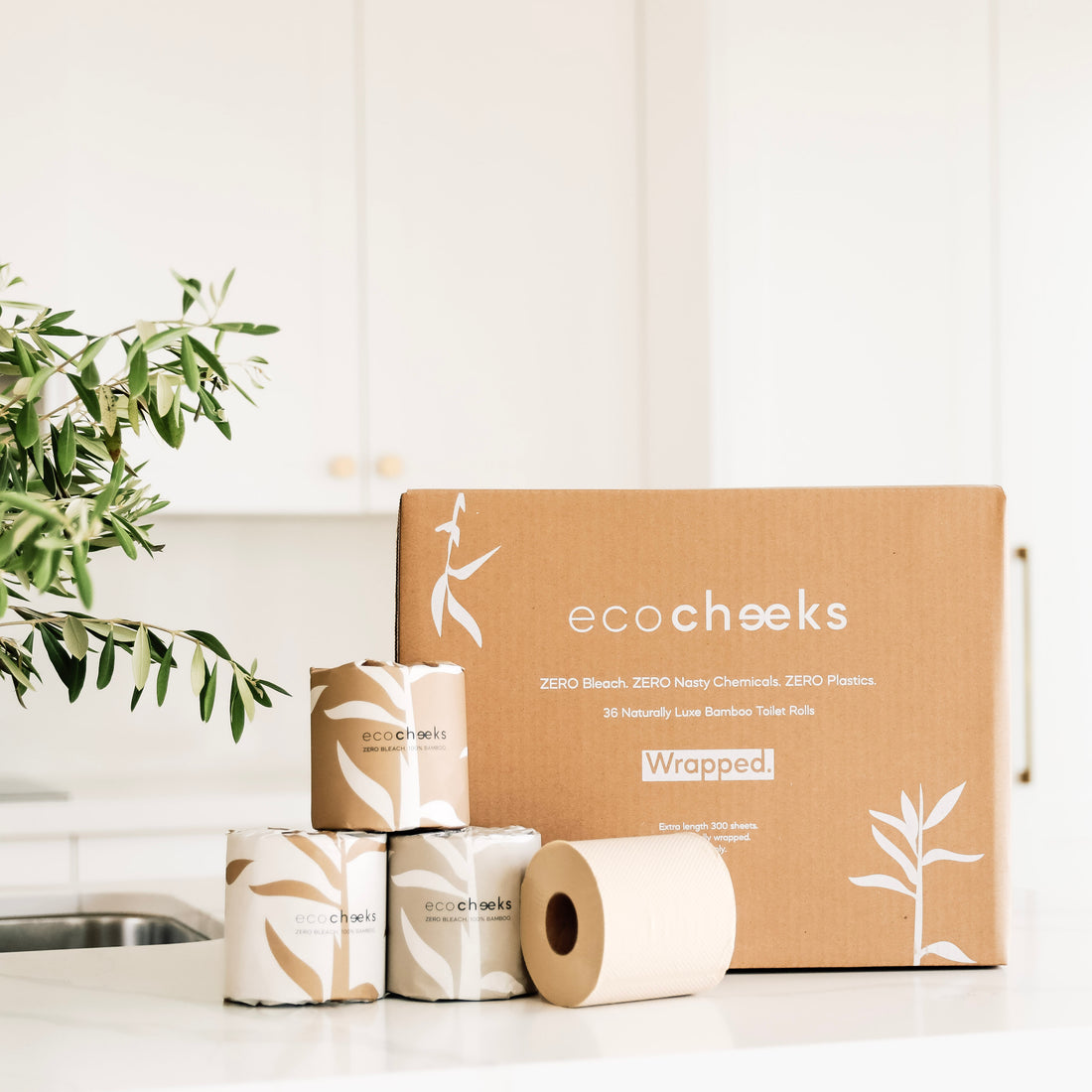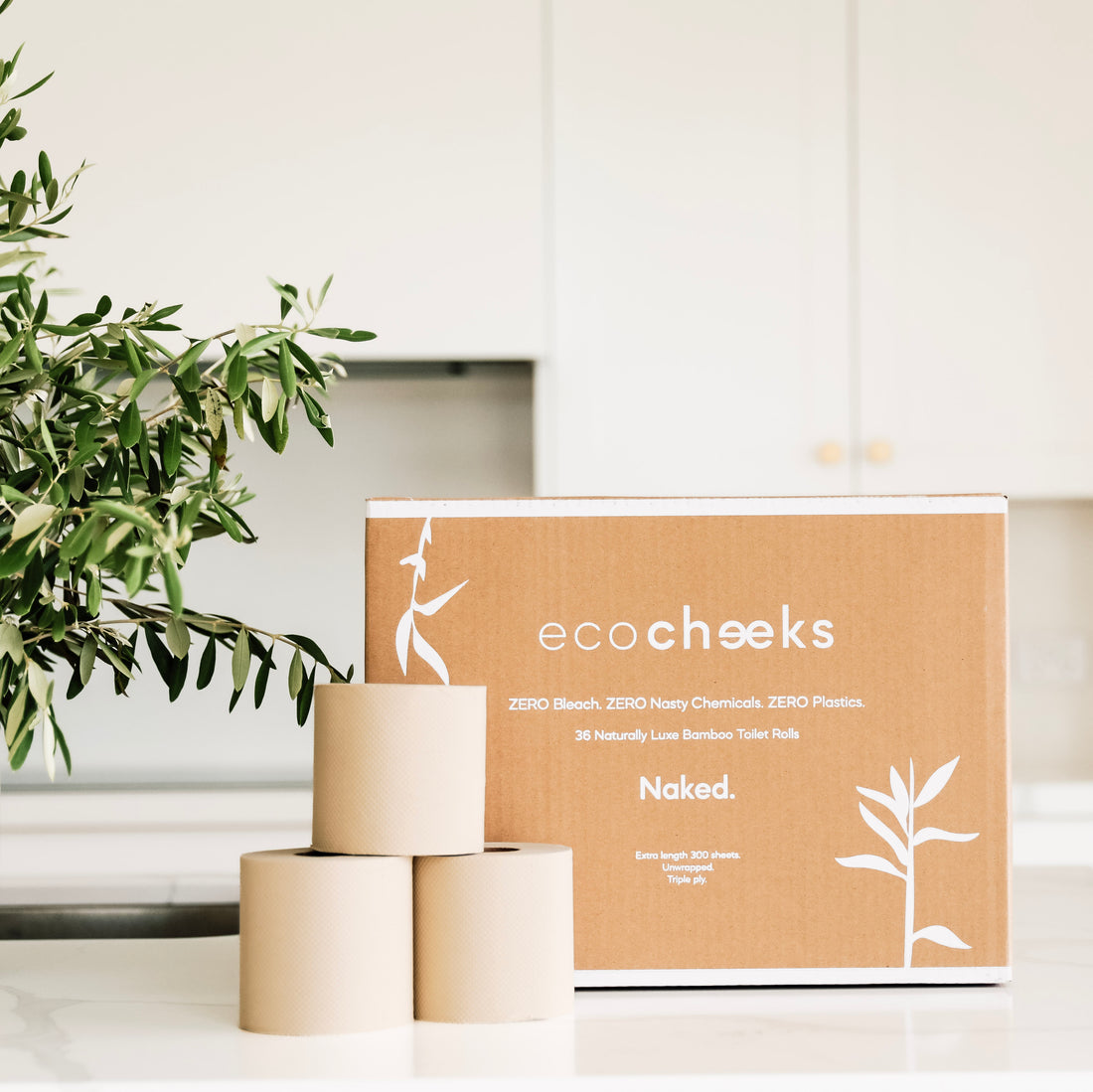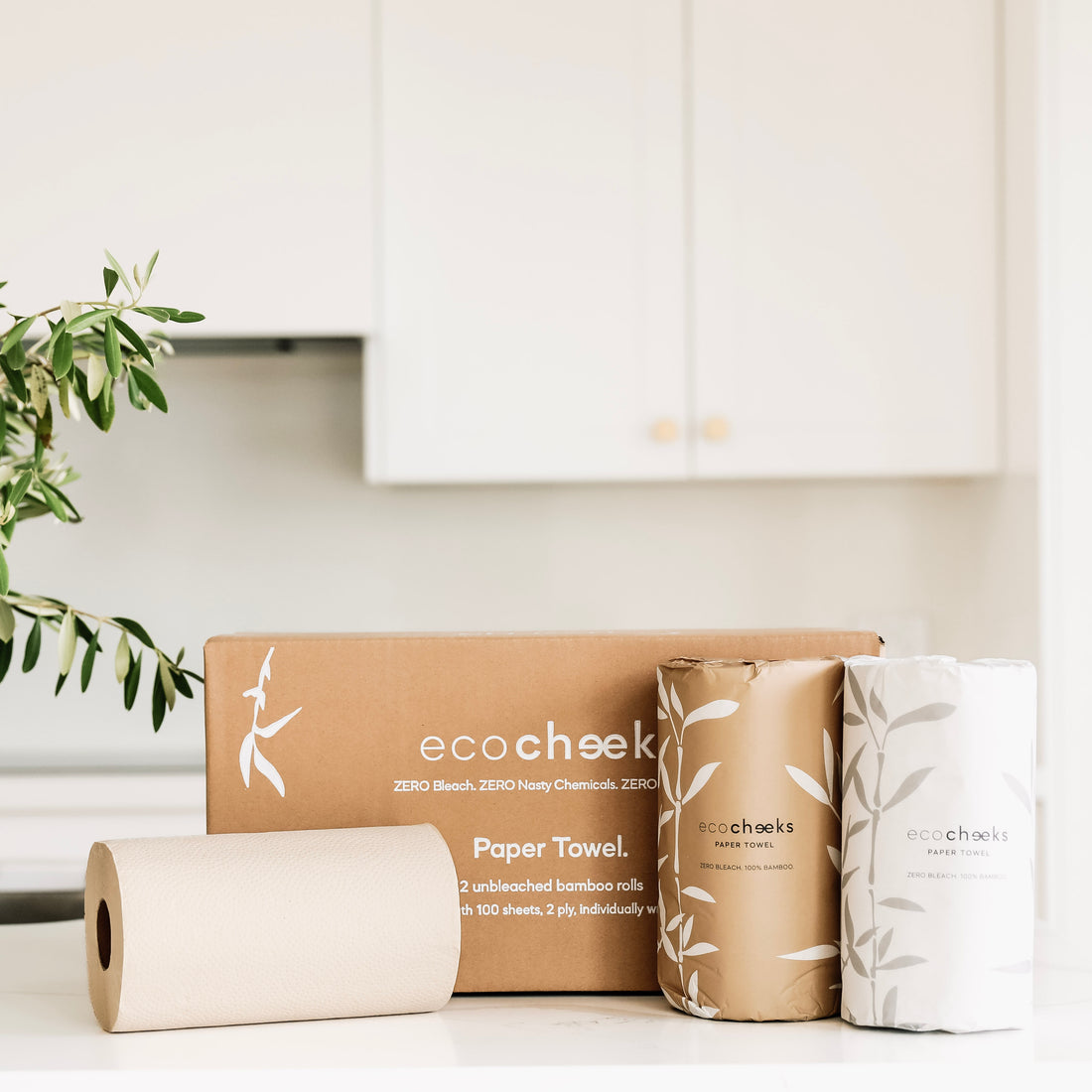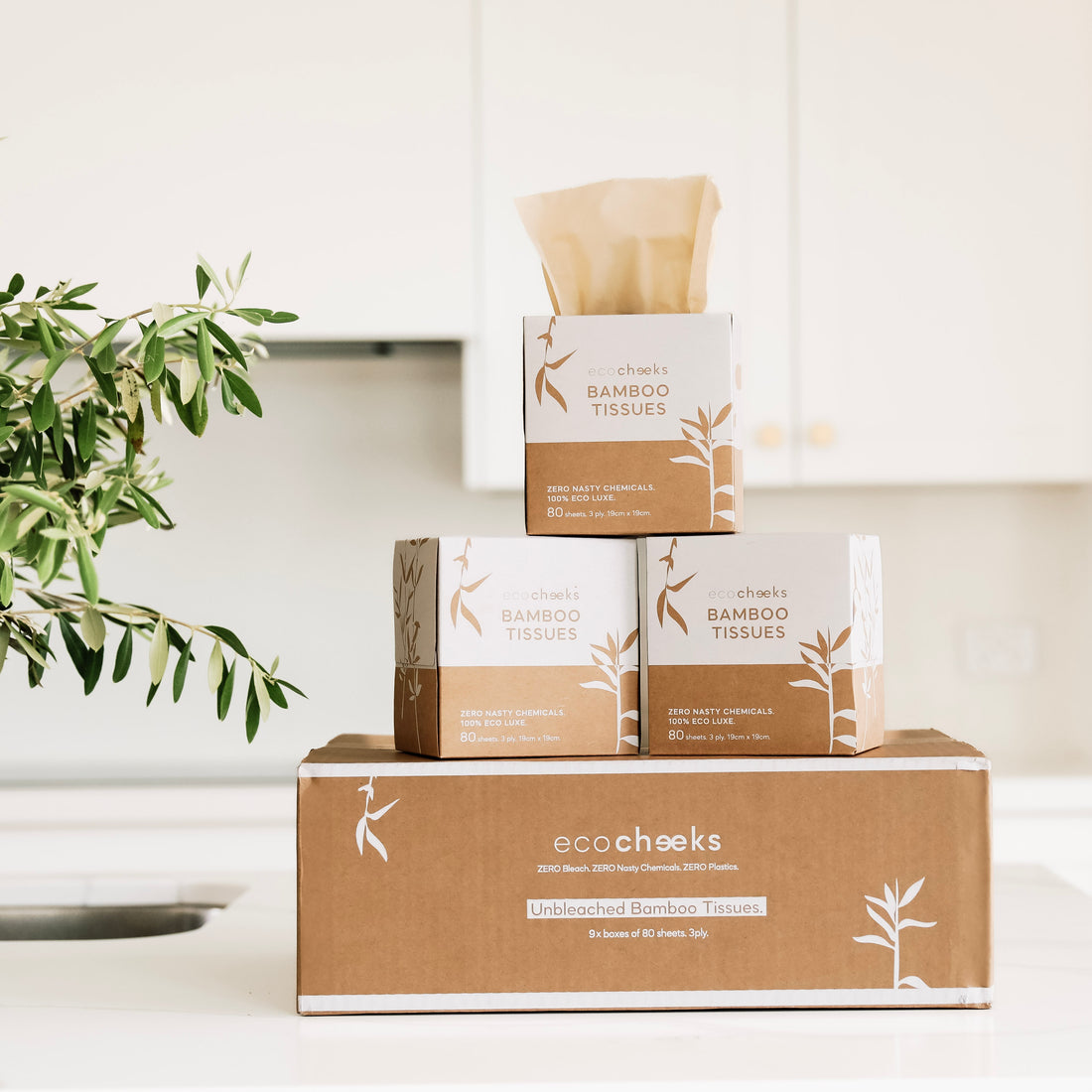As Plastic-Free July comes to a close, it's a great time to reflect on our efforts and continue reducing plastic use beyond this month. For the final instalment of our Advanced Plastic-Free Life Guide series, we'll focus on effective changes you can make at home to cut down on plastic and inspire those around you.
Take a moment to look around and count ten plastic items. Now, try to find ten plastic-free items. It's not easy—plastic is everywhere, from our toothbrushes to grocery bags. Its durability makes it useful, but its inability to decompose creates long-lasting waste, turning plastic into a global issue.
Reducing plastic consumption doesn't have to be hard. Here are 5 simple but advanced swaps to help you start your plastic-free life and make a big difference in your daily routine:
1. Plastic-Free Cleaning Solutions: One of the most straightforward ways to reduce plastic in your home is by switching to plastic-free cleaning solutions. Here’s how to make it happen:

DIY Cleaning Products
Homemade cleaning products are not only environmentally friendly but also super easy to make. Here are some simple recipes:
All-Purpose Cleaner
Ingredients:
- 1 cup of white vinegar
- 1 cup of water
- 10-15 drops of essential oil (lemon, lavender, or tea tree)
Instructions:
- Mix vinegar and water in a spray bottle.
- Add essential oil for a pleasant scent.
- Shake well before use.
-
Use on countertops, sinks, and other surfaces.
Glass Cleaner
Ingredients:
- 1 cup of white vinegar
- 1 cup of water
- 1 tablespoon of cornstarch
- 10 drops of essential oil (optional)
Instructions:
- Combine vinegar and water in a spray bottle.
- Add cornstarch and essential oil.
- Shake well before use.
-
Spray on glass surfaces and wipe with a cloth.
Bathroom Cleaner
Ingredients:
- 1 cup of baking soda
- 1/4 cup of liquid castile soap
- 10 drops of tea tree oil
Instructions:
- Mix baking soda and castile soap to form a paste.
- Add tea tree oil and mix well.
- Apply to bathroom surfaces, scrub, and rinse.
2. Plastic-Free Cleaning Tools: Next time, ditch the plastic cleaning tools and opt for reusable alternatives:

- Bamboo Scrub Brushes: Replace plastic scrub brushes with bamboo ones. They’re biodegradable and look great in your kitchen.
- Reusable Cleaning Clothes: Instead of disposable wipes, use reusable cleaning cloths made from natural fibres. They’re washable and reusable, making them a sustainable choice.
- Compostable Sponges: Swap synthetic sponges for compostable ones made from cellulose. They work just as well and break down naturally.

- Natural Fibre Clothing: Opt for clothing made from natural fibres like Bamboo, cotton, linen, wool and hemp. Australian brands like Lou Lou Australia and Bamboo Body offer stylish options made from sustainable materials.
- Secondhand Shopping: Thrift stores, consignment shops, and online secondhand marketplaces are great places to find unique, high-quality clothing without the environmental footprint of new items. Plus, it’s fun to hunt for vintage treasures and give clothes a second life!
- Eco-Friendly Brands: Support brands that prioritise sustainability and ethical practices. Look for certifications like GOTS (Global Organic Textile Standard) or Fair Trade, which ensure high environmental and social standards. Australian brands like Outland Denim and Boody offer eco-friendly options for clothing and accessories.
- Plastic-Free Accessories: Complete your plastic-free look with accessories made from natural materials:
- Wooden or Metal Sunglasses: Choose sunglasses with frames made from wood, bamboo, or metal instead of plastic. Australian brands like Grown offer stylish options that are kind to the environment.
- Natural Fibre Bags: Opt for bags made from materials like cotton, plant materials, jute, or hemp. These options are durable, biodegradable, and come in a variety of styles to suit any occasion.
- Eco-Friendly Shoes: Look for shoes made from sustainable materials like natural rubber, cork, or organic cotton. Many eco-friendly brands also use recycled materials to create stylish and comfortable footwear. Australian brands like Etiko offer eco-friendly shoe options for both men and women.
4. Zero-Waste On-the-Go: Reducing plastic waste while you’re out and about is easier than you might think. Here are some simple swaps to help you stay eco-friendly on the go:

- Reusable Water Bottles: Ditch single-use plastic bottles and carry a reusable water bottle with you. Stainless steel bottles are durable, insulated, and keep your drinks at the perfect temperature.
- Travel Utensil Set: Say no to plastic cutlery by carrying a travel utensil set made from stainless steel or bamboo. Many sets come with a handy carrying case, making it easy to keep them in your bag or car.
- Reusable Coffee Cups: If you’re a coffee lover, bring your own reusable cup to your favourite café. Many coffee shops offer discounts for customers who bring their own cups, and you’ll be reducing plastic waste with every sip.
- Cloth Shopping Bags: Always have a cloth shopping bag on hand for impromptu purchases. These bags are lightweight, foldable, and much sturdier than plastic ones. Keep one in your bag, car, or pocket for convenience.
- Reusable Produce Bags: When grocery shopping, use reusable produce bags
5. Secondhand and Pre-Loved Furniture: In addition to clothing, consider extending your plastic-free lifestyle to furniture. Buying secondhand or pre-loved furniture is a fantastic way to reduce plastic waste and give items a new life.
Platforms for Secondhand Furniture:
- Facebook Marketplace: A popular platform where you can find a variety of secondhand furniture items in your local area. It’s easy to use and often has great deals.
- Gumtree: Another excellent resource for finding second hand furniture. You can browse listings in your region and find unique pieces at affordable prices.
Benefits of Secondhand Furniture:
- Eco-Friendly: By choosing second hand furniture, you help reduce the demand for new plastic-based products and prevent perfectly good items from ending up in landfills.
- Cost-Effective: Secondhand furniture is often much cheaper than new items, allowing you to save money while making sustainable choices.
-
Unique Finds: You can discover unique and vintage pieces that add character and charm to your home, making it truly one-of-a-kind.
Eco Cheeks: The Sustainable Choice for Tissue Paper Products

Eco Cheeks offers a variety of unbleached bamboo toilet paper and tissue products that are eco-friendly and gentle on the skin. Here’s a closer look at the range of products Eco Cheeks provides and how we help reduce plastic use, making it easier for you to integrate sustainability into your daily life:
- Eco Cheeks offers a range of unbleached bamboo tissue products, including toilet paper, tissues, and paper towels, providing eco-friendly alternatives for your everyday needs.
- These products are biodegradable, chemical-free, and come in fully recyclable packaging, making them a sustainable choice for your household.
- Whether you use them at home, on the go, or as eco-friendly gifts, Eco Cheeks helps you reduce plastic use and promote a cleaner, greener home.
By making these 5 effortless plastic-free swaps, you’re taking significant steps toward a more sustainable lifestyle. Each small change adds up, creating a ripple effect that can inspire others and make a positive impact on our planet.

Thank you for joining us on this journey through Plastic-Free July and hopefully, one day, a plastic-free life. Together, we can create a cleaner, greener world. Stay tuned for more eco-friendly tips and inspiration, and let's make plastic-free living the new norm!
We'd love to hear from you! What DIY plastic-free practices are you already implementing at home? Share your tips, experiences, and ideas in the comments below:








